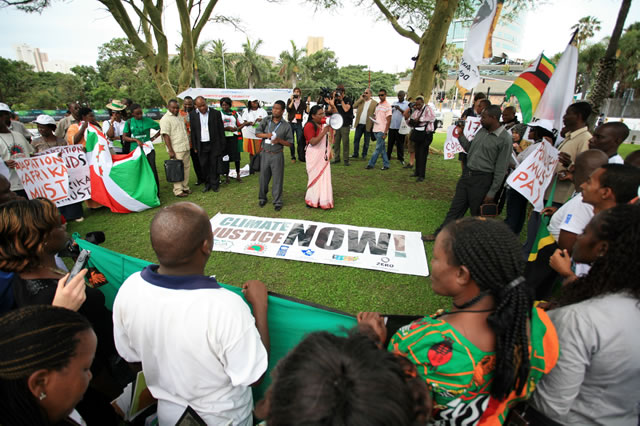“The richest countries caused the problem, but it the world’s poorest who are already suffering from its effects. In Durban, the international community must commit to righting that wrong.”
– Mary Robinson and Archbishop Desmond Tutu, writing in The Guardian
Having a legal framework with clear and common rules to which all countries are committed is critically important – and the only assurance we have that action will be taken to protect the most vulnerable, Mary Robinson and Archbishop Desmond Tutu write in the Guardian.
Mrs Robinson and Archbishop Tutu write about how they met five African farmers in South Africa two years ago who told them how climate change was undermining their livelihoods. Two years later at COP17 the situation for poor people in Africa and elsewhere “has deteriorated even further”.
They write that a global deal is desperately needed: “the first commitment period of the Kyoto Protocol expires at the end of 2012. So the European Union and the other Kyoto parties (the United States never ratified the agreement, and the protocol’s terms asked little of China, India, and other emerging powers) must commit to a second commitment period, in order to ensure that this legal framework is maintained.”
“At the same time, all countries must acknowledge that extending the lifespan of the Kyoto Protocol will not solve the problem of climate change, and that a new or additional legal framework that covers all countries is needed. The Durban meeting must agree to initiate negotiations towards this end – with a view to concluding a new legal instrument by 2015 at the latest.”
Climate change is a matter of justice, they write. “The richest countries caused the problem, but it the world’s poorest who are already suffering from its effects. In Durban, the international community must commit to righting that wrong.”
Related:
Our Work at COP17: Legal Form of a new Agreement
Climate change is a matter of justice – The Guardian, 5th December 2011


